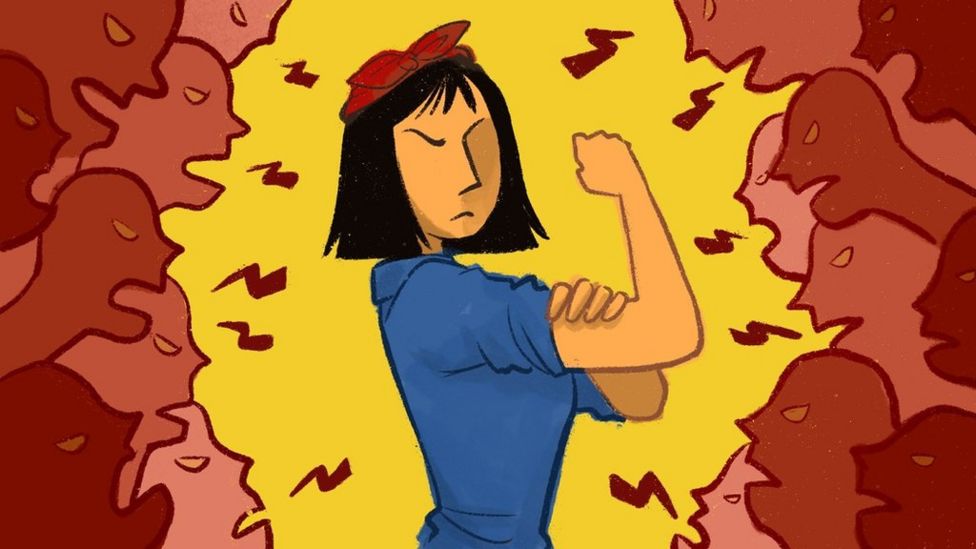MANAGING EDITOR ZHI JIAO DANIELLE GOH WRITES – With the recent international headlines about a Beijing divorce case ruling in which a man was ordered to pay his ex-wife for years of housework, now is perhaps a good time to reflect on the recent rise of feminism in China.
2020 might have been a bad year for China, its global reputation tarnished by the outbreak of Covid-19 in Wuhan. But for Chinese women it has been an “achieving” year, with a new wave of feminism on the rise.
Consider: The first wave came with state media reports that the medical teams sent to Hubei province, where Wuhan is located, had over 28000 female healthcare workers – 68% of the teams. Mao’s famous quote that “women hold up half the sky” lives on.
Consider this, too: As the Covid-19 situation improves, a variety TV show called “Sisters Who Make Waves” became a summer hit. The series shows that Asian women over 30 years old can still be stars with viable careers rather than industry cast-offs. The show had actresses such as Annie Yi (52), Ning Jing (48) and Wu Xin (38), stars who were allowed to shine beyond the label of age and because of their actual talents.
There’s more. Towards the end of the year, Yang Li, a feminist comedian, came to fame through a stand-up comedy television show, “Rock and Roast.” Her well-known quote that “Men are very mysterious…After all, they can look so average and yet be so full of confidence” has gotten overwhelmingly positive responses.
These feminist waves have lapped up on shores beyond 2020. Two months into 2021, China’s star female director, Jia Ling, made Chinese box office history during the Lunar New Year with her film “Hi, Mom.” It reached a record level of 4.7 billion yuan (US$670 million), making Jia Ling the highest-grossing Chinese woman director in China. “Hi, Mom” is also now in third place on the list of all-time, highest-grossing films in China.
Following the popularity of the film, the tag #girlshelpgirls began trending on Weibo, China’s Twitter-like social media site, with a viewership of over 90 million. The discussion centered around the idea that female directors are as capable as male directors, and sometimes even better, in part because they can see beyond the beauty of female actresses’ physical appearances.
When the #Metoo movement took off internationally three years ago, activists had to battle China’s censorship at a time when the Party-state had zero tolerance for collective protests. Fast forward three years, though, and it seems that feminism has finally bloomed in China. One main reason is the growing purchasing power of Chinese women. They have increasingly become an important segment of China’s consumer base, which in turn makes them a driving force for a greater say in societal changes.
Yet nothing is perfect. A few months ago, China premiered a TV show based on real life stories about front-line workers in Wuhan. Female characters were shown playing accommodating and submissive roles. It defied the reality that women not only played decisive roles during the pandemic but accounted for a significant majority of staff. The show faced many critical comments and sparked sexism debates online in China. Moreover, the Chinese Communist Party (CCP) introduced a one-month cooling off period for couples filing a divorce. This new law has sparked criticism from many young women who have threatened to stay single so as to avoid the possible marriage trap.
Despite these obstacles, Chinese society should still be applauded for efforts to improve the status of women in a traditionally Confucian patriarchal system.
Ultimately, although at its own slow pace, feminism appears to be flowering anew.

